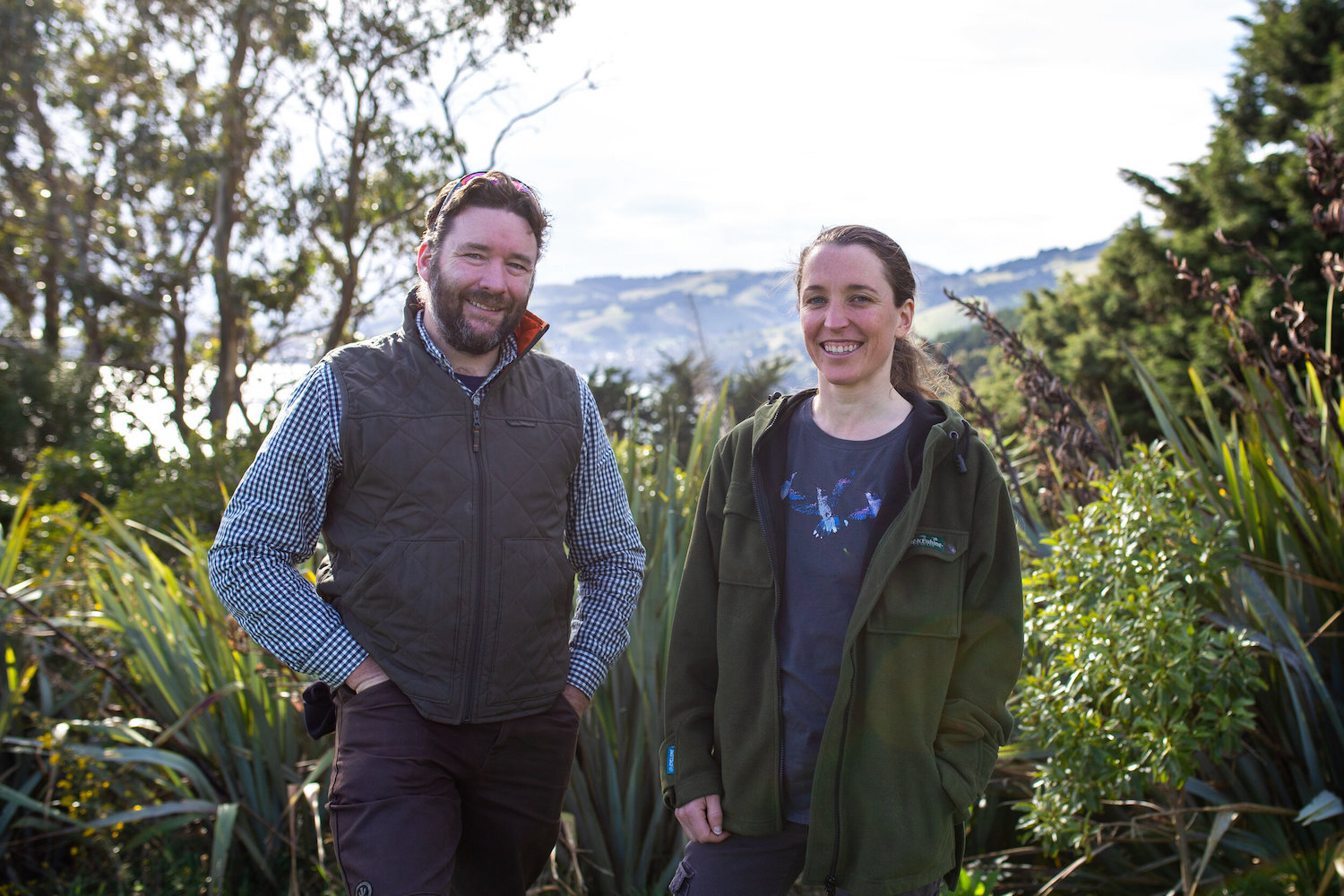Latest update from Predator Free Dunedin
Things are bedding in now - operational plans have been thoroughly reviewed to ensure that our mission can be achieved, and new staff and contractors are in place to make sure we get there. A research plan to support PFD's objectives has been drafted, and we are getting closer to launching a new urban predator control project in Dunedin city.
Otago Peninsula
The OPBG trust has recruited a new Project Manager. Nathan McNally started in the role in August 2019. He has a background in managing biodiversity and pest programmes for the Department of Conservation and for Northland Regional Council.
Marica Dale started in a part-time position as a Volunteer Co-ordinator in May. Marica will be working with the Guardians group at the Dunedin end of the Peninsula. There will be a need to employ further coordinators as the urban trapping programme expands into the townships and settlements of the Peninsula.
The eradication plan has recently been rewritten by Dr.Mike Thorsen, who worked alongside the OPBT and PFD teams to ensure the next four years of work programme will achieve the ambitious goal of possum eradication. The new eradication plan focuses on achieving eradication in targeted sectors before expanding work to other sectors. This is a changed approach from a programme of widespread Peninsula-wide suppression and mop-up of known hotspots across the Peninsula. Eradication work starts in mid-September 2019, when contractors will start bait station work in sector 1 & 3.
West Harbour- Mt.Cargill – Flagstaff.
A significant milestones has been achieved by the Halo Team, with best-practice trapping density achieved across the 3,900 Inner Halo. In conjunction with Manakki Whenua Landcare Research a camera trap programme has been implemented to help ascertain baseline data for mustelid abundance within the project area and to measure the effectiveness of the predator control work. 10 lines of 3 cameras inside the Inner Halo treatment area and 5 lines as controls outside of currently treated areas were deployed. This will also make use of ferret bedding lure to test its effectiveness.
OSPRI’s TB free programme.
Since March, High Country Contracting (HCC) have been working to deliver OSPRI’s TB free operations across the primarily Council-owned Flagstaff area. This is a core part of the PFD project area, and is the likely main migration route for possums into the urban and Halo Project areas.
Bait station setup on the city side of Flagstaff took 2 weeks with a crew of 20 people. The bush was extremely thick in the majority of the area meaning tracks had to be cut with chainsaws and machetes. Over 650 bait stations, along with thousands of bait bags, were set up across the area. Bait stations were filled multiple times during the operation, which finished at the end of July 2019. Possum numbers were extremely high with up to 8 dead possums noted under some bait stations. An estimated 2,000 possums were killed during this operation. Following the control work, wax tags were used by an independent quality control contractor and no bite marks were found. This is a huge success for HCC, OSPRI and Predator Free Dunedin.
Due to water catchment restrictions, the methods on the back side of Flagstaff were limited to traps only and no traps could be placed within 30m of public tracks. Trapping commenced at the end of July 2019 and is still ongoing. When high numbers of possums were encountered, DCC allowed public tracks to close for 4 nights so traps could be placed closer. A total of 1,960 possums have been caught over eight weeks. HCC has cut more than 20kms worth of tracks through the thick native scrub. Total trap deploys are over 1,400 traps. Work here is expected to finish on the 27th of September 2019.
Possum numbers need to be kept at low and even numbers over multiple years to eradicate bovine TB. HCC will re-work this area in 2020 and 2021 along with nearby areas in Mount Cargill. Following their work, the Halo Project will maintain control succession.
For more info visit www.ospri.co.nz/dunedin

